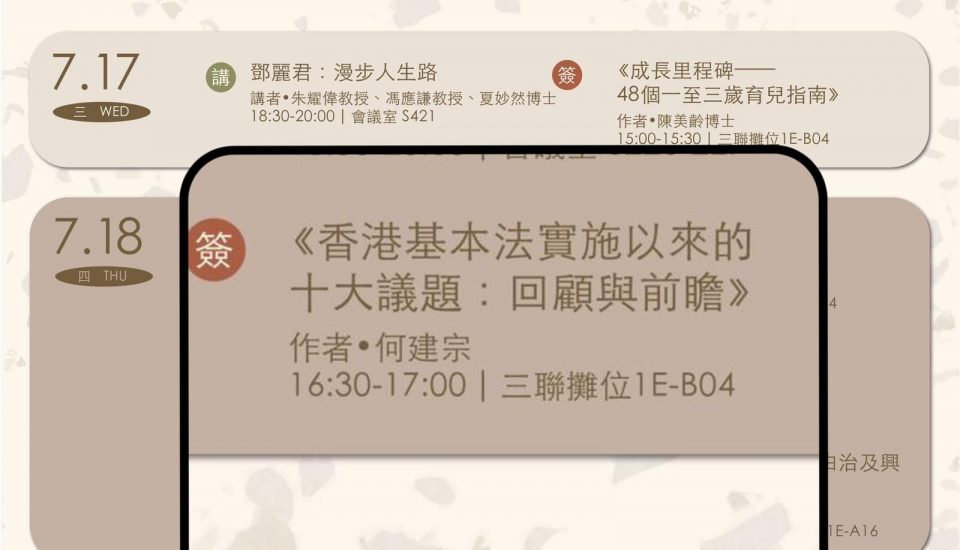Henry Ho: New milestone in district council elections heralds better governance

何建宗:而今邁步從頭越——香港區議會選舉有感

施漢銘:英美國安法律更嚴 批評香港實屬無理(上)

The 2023 District Council Ordinary Election, held on Sunday, marked a momentous milestone for Hong Kong as more than 1 million voters cast their ballots to select their favorite candidates. The election is the first since the district-level electoral arrangement was revamped, representing completion of the last-mile quest for enhancement of the electoral systems in Hong Kong after the chief executive and the Legislative Council elections.
With a turnout rate of 27.54 percent despite a technical glitch in the computer system, causing a failure in polling stations, numerous young faces and professionals from various sectors were elected to serve residents. The new generation of district councilors is widely expected to shoulder the responsibility of building a better community.
Under the revamped electoral arrangement, the district councils, with a total 470 members, are formed by appointed members and those elected in the District Committees constituencies and geographical constituencies, as well as ex officio members. In the election, over 170 candidates from various sectors vied for 88 seats across 44 geographical constituencies, and over 220 contestants competed for another 176 seats in the District Committees constituencies.
The new arrangement has ensured that the district councils are helmed by competent and capable candidates, thereby putting an end to the chaos brought about by the 2019 District Council Ordinary Election.
Hong Kong learned a painful lesson in the 2019 District Council Ordinary Election, which was conducted amid the violent social unrest that gripped the city.
With external foreign forces stoking the unrest, radical political agitators from the opposition camp seized control of most district councils by taking advantage of the political situation and the loopholes in the old electoral system.
In the 2019 district council elections, the radicals engaged in various means of sabotaging the election campaign of pro-establishment candidates, indulging in causing violence, arson, vandalizing the candidates’ offices, and intimidating them and their supporters. The agitators damaged public property such as traffic lights, and smashed some stalls that had posted pro-establishment candidates’ posters. The agitators’ acts mired the election in horror, leaving voters to cast their votes in terror. The radicals’ moves were not a manifestation of democracy; their acts tarnished the election as a blot on the history of Hong Kong’s democratic development.
Sunday’s elections will facilitate the newly formed district councils to revert to their original consultative functions. Many political agitators who managed to win a seat in a district council promoted their political agenda at meetings at the expense of residents’ interests.
The incumbent district councils have been at a standstill since over 200 members were disqualified or resigned for various reasons in 2021, leaving only about 140 members, or 30 percent of all members still serving in district councils. Currently, the 25-seat Wong Tai Sin District Council has two members left, whereas the 15-seat Central and Western District Council has only three members left, and the 17-seat Southern District Council has three members left. Some district council members have not been able to hold meetings for a long time or raise motions on community affairs or express their views to the government. The newly formed district councils will hopefully restore their original functions and focus on community affairs.
Meanwhile, Sunday’s polls have set a new hallmark for district council elections. All candidates in their election campaigns behaved in an orderly, civilized and rational manner, removing the taint left by the 2019 election, which was marred by violence. This time, candidates showed mutual respect. As compared with the previous district council elections, there was no apparent reoccurrence of verbal assault, defamation and intimidation among candidates. Candidates mounted debates on their respective agendas on community affairs in various election forums. The past phenomenon of conflicts, violence and smearing in elections has disappeared, and the city’s political environment has returned to normal. The elections were held in a free, open and transparent manner. Authorities and the Electoral Affairs Commission have not received any complaints relating to violence — except complaints on advertisements and candidates’ campaigning. Sunday’s elections demonstrated features of democratic elections.
More energetic young people and professionals joined the latest district council elections. In some geographical constituencies, candidates were only around 30 years old. District governance is related to people’s livelihoods; new district council members can offer advice to the government on hot district issues such as care for the elderly and enhancement of community support, improvement of pedestrian facilities and road safety, as well as provisions for more after-school care services.
Above all, it is encouraging to see candidates from ethnic minority groups competing in the district council elections. There were three candidates from ethnic minority groups among the six candidates competing for two seats in the Yau Tsim Mong South geographical constituency. Ethnic minority communities are a crucial part of our society. Based on the Census and Statistics Department figures unveiled late last year, after excluding foreign domestic helpers, the number of ethnic minorities was over 301,300 in 2021, making up 4.1 percent of Hong Kong’s population. However, they are not widely represented in local consultative bodies. Therefore, it is paramount that more chances are offered for ethnic minority groups to express their voices and take part in community affairs in the city.
Sunday’s district council elections marked a huge step forward in achieving good governance. The return of high-quality and efficient district councils serves the best interests of all Hong Kong residents, marking a new chapter on exemplary district governance.
The author is founder and chairman of the One Country Two Systems Youth Forum, and a member of the Beijing Municipal Committee of the Chinese People’s Political Consultative Conference.
The original article was published on China Daily (Dec 12, 2023)




